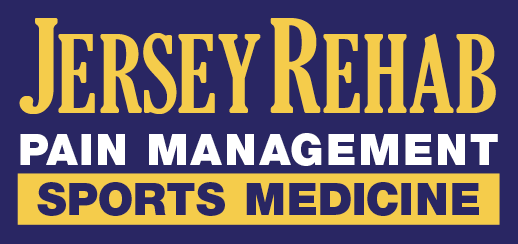Chronic Pain in the Workplace: Your Rights and Resources for Accommodation
Living with chronic pain is a daily struggle that can significantly impact your quality of life, especially in the workplace. For many, the demands of a job can exacerbate symptoms, making it difficult to maintain productivity and manage discomfort. However, it’s essential to know that you’re not alone, and there are rights and resources available to help you manage chronic pain in the workplace.
Understanding Chronic Pain
Chronic pain is a complex condition that persists for weeks, months, or even years. Unlike acute pain, which is a direct response to injury or illness, chronic pain can continue long after the initial cause has been treated or may arise without any apparent reason. Common conditions associated with chronic pain include arthritis, fibromyalgia, back pain, migraines, and nerve damage.
The impact of chronic pain extends beyond physical symptoms. It can lead to emotional and mental health challenges, such as anxiety, depression, and fatigue. In the workplace, chronic pain can affect concentration, stamina, and overall performance, making it challenging to meet the demands of your job.
Your Legal Rights as an Employee
If you’re dealing with chronic pain, it’s important to understand your legal rights in the workplace. Several laws are designed to protect employees with chronic pain, ensuring that they receive the accommodations necessary to perform their job duties effectively.
1) Americans with Disabilities Act (ADA)
- The ADA is a federal law that prohibits discrimination against individuals with disabilities, including those with chronic pain. Under the ADA, employers with 15 or more employees are required to provide reasonable accommodations to employees with disabilities, as long as these accommodations do not cause undue hardship to the business.
- Reasonable accommodations can include modifications to your work environment, changes in your work schedule, or adjustments to your job duties. Examples might include ergonomic workstations, more frequent breaks, telecommuting options, or flexible hours to allow for medical appointments.
2) Family and Medical Leave Act (FMLA)
- The FMLA allows eligible employees to take up to 12 weeks of unpaid, job-protected leave per year for certain medical conditions, including chronic pain. This leave can be used for your own medical treatment or to care for a family member with a serious health condition.
- The FMLA ensures that your job will be waiting for you when you return, and it can be taken all at once or intermittently, depending on your needs. This flexibility can be invaluable if you need time off for medical treatments or to manage flare-ups of chronic pain.
3) State and Local Laws
- In addition to federal laws, many states and localities have their own laws that provide additional protections for employees with disabilities. These laws may offer more comprehensive coverage or extend protections to smaller employers. It’s important to familiarize yourself with the specific laws in your area to fully understand your rights.
How to Request Accommodations
Requesting accommodations in the workplace can feel daunting, but it’s a necessary step to ensure that you can perform your job while managing chronic pain. Here’s how to approach the process:
- Document Your Condition: Before approaching your employer, it’s important to have documentation of your chronic pain from a healthcare provider. This documentation should include a diagnosis, details about how your condition affects your ability to work, and recommendations for accommodations that could help you perform your job more effectively.
- Initiate the Conversation: Requesting accommodations typically begins with a conversation with your employer or human resources (HR) department. Be clear and specific about your needs and how your chronic pain affects your work. It’s helpful to come prepared with suggestions for accommodations that would help you manage your pain and perform your job more effectively.
- Explore Solutions Together: The ADA requires employers to engage in an interactive process with employees who request accommodations. This means that you and your employer should work together to identify possible solutions. Be open to different ideas and remember that accommodations are meant to be reasonable adjustments, not complete overhauls of your job duties.
- Follow Up: After accommodations are implemented, it’s important to follow up with your employer to ensure that they are effective. If your needs change over time, don’t hesitate to request further adjustments.
Resources for Managing Chronic Pain in the Workplace
In addition to legal protections, there are numerous resources available to help you manage chronic pain while maintaining your job. Here are some valuable tools and strategies:
1) Occupational Therapy
Occupational therapists can help you develop strategies to manage chronic pain at work. They can assess your work environment and recommend ergonomic adjustments, time management techniques, and other strategies to help you stay productive while minimizing pain.
2) Employee Assistance Programs (EAPs)
Many employers offer EAPs, which provide confidential counseling and support services for employees dealing with personal or work-related issues, including chronic pain. EAPs can connect you with resources such as pain management programs, support groups, and mental health services.
3) Workplace Wellness Programs
Some employers offer wellness programs that focus on overall health and well-being. These programs may include access to fitness facilities, yoga classes, stress management workshops, and other activities that can help you manage chronic pain.
4) Support Networks
Connecting with others who are dealing with chronic pain can provide valuable emotional support and practical advice. Look for support groups, both online and in person, where you can share your experiences and learn from others who understand what you’re going through.
When to Seek Professional Help
If chronic pain is significantly affecting your ability to work, it’s essential to seek professional help. A healthcare provider specializing in pain management, like those at Jersey Rehab, can offer comprehensive treatment options tailored to your needs. These may include physical therapy, medication management, and alternative therapies designed to reduce pain and improve your quality of life.
In conclusion, navigating chronic pain in the workplace can be challenging, but understanding your rights and accessing the available resources can make a significant difference in your ability to maintain your career and well-being. By proactively seeking accommodations, utilizing support networks, and working with healthcare professionals, you can manage your pain more effectively and continue to perform your job to the best of your ability.
At Jersey Rehab, we understand the challenges of living with chronic pain and are dedicated to helping you find relief while maintaining your career. Our experienced team will work with you to develop a personalized treatment plan that addresses your unique needs, so you can continue to thrive in the workplace. Click here to schedule an appointment.

